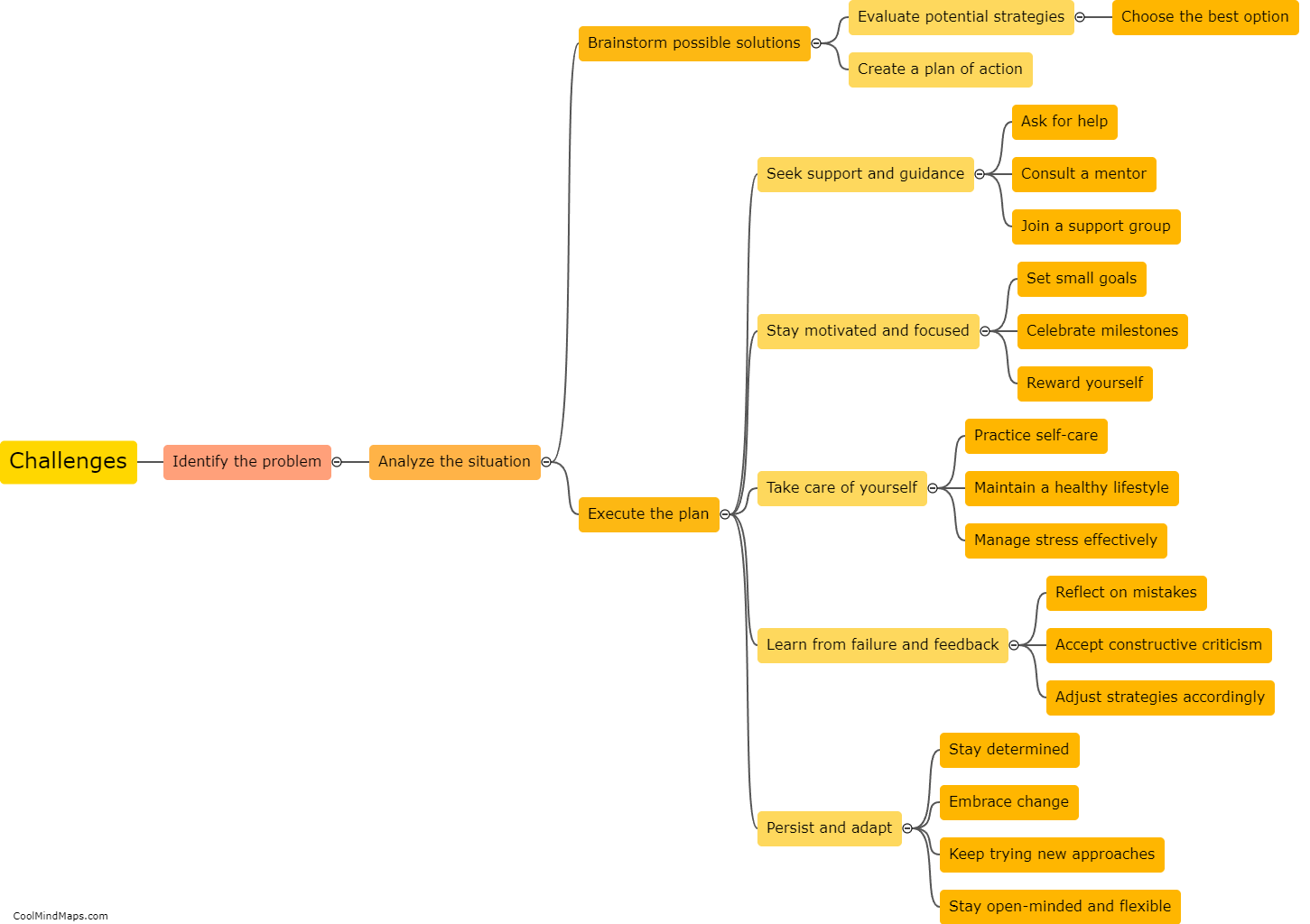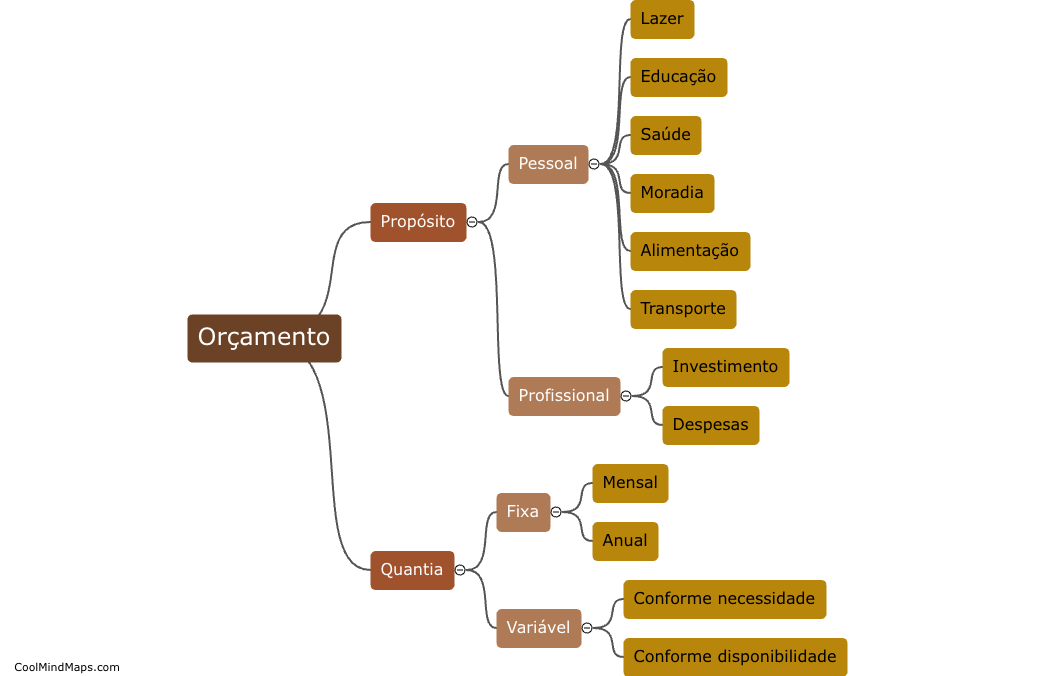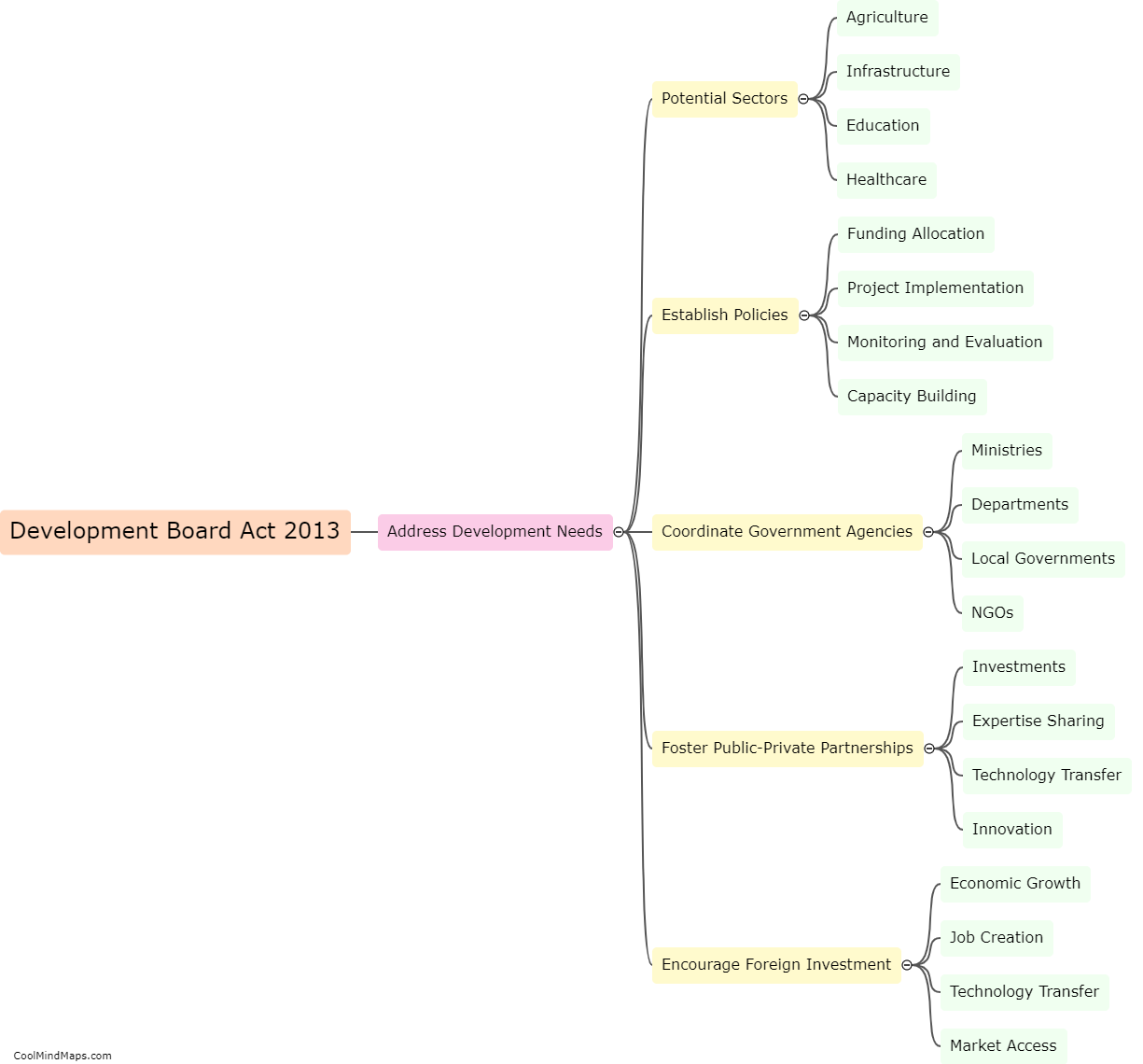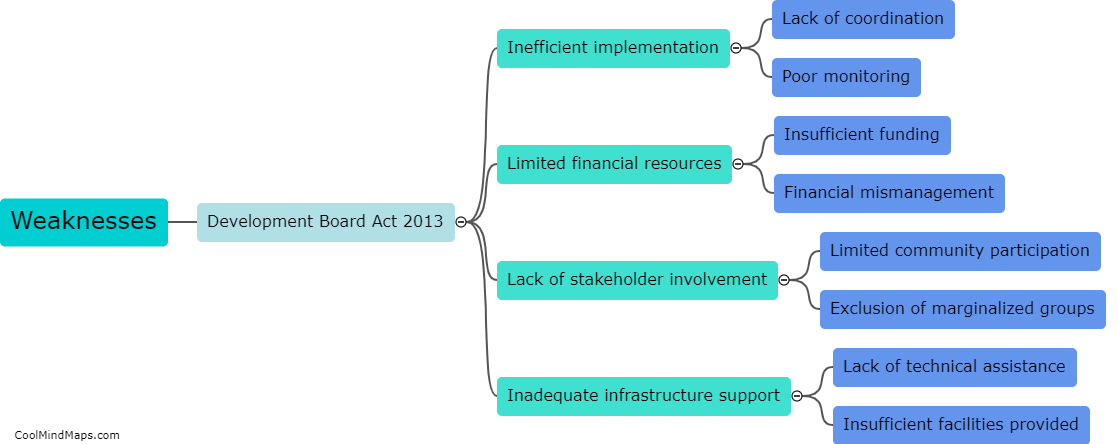What are the flaws of the Development Board Act 2013?
The Development Board Act 2013, while well-intentioned, has several flaws that hinder its effectiveness. Firstly, the act gives excessive power to the development boards, allowing them to bypass local government bodies and decision-making processes. This centralized approach leads to a lack of accountability and transparency in decision-making, as the development boards are not answerable to the local communities they are supposed to serve. Additionally, there is a lack of clarity in the act regarding the selection process and qualifications of board members, which can result in individuals with insufficient expertise or vested interests being appointed. Moreover, the act does not adequately address the issue of resource allocation, leading to unequal distribution of development projects and benefits. Overall, these flaws limit the effectiveness and inclusiveness of the Development Board Act 2013.

This mind map was published on 28 November 2023 and has been viewed 113 times.











